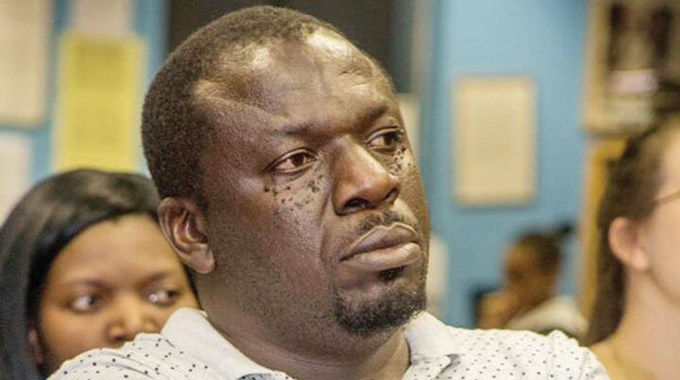Gender-sensitive response to covid-19 needed

Andile Tshuma
Sometimes a one-size-fits-all approach just does not work and responses to the pandemic must be gender-sensitive.
Degrees of vulnerability to the effects of the pandemic may also differ depending on the respective needs between men and women, therefore actions to mitigate the impact of Covid-19 must be crafted such that they are relevant to the unique needs of men and women.
The epidemic has been a nasty equaliser in affecting people from all races, regions, genders, classes, and nationalities, its impact is not the same for everyone.
The different lived realities will determine the impact of this pandemic for women and men, according to the conditions of their existence.
A gender-neutral response to this pandemic will just not work. As the global community weathers the worst of the Covid-19 pandemic, it is starkly evident that its impacts will extend beyond public health and into the economic, social and political realm. Women are most likely to be affected economically, as they may be forced to forego their economic activities and concentrate on care giving during such pandemics.
During pandemics, it is of paramount importance to remember that gender mainstreaming is no luxury tool in determining reaction and action.
Gender is a cross-cutting dimension that must be factored into the analysis and actions of policy makers for improved response. Existing socio-economic patterns shaped by gendered norms and values are amplified by pandemics becoming determining factors in vulnerability and impact.
Gender-sensitive interventions can also help to bring about gender equality and help reduce the impact of the pandemic on the quality of life of women and girls around the world. Since the dawn of this millennium, international development discourse and formal agreements have increasingly emphasised the importance of gender empowerment and equality.
The millennium declaration in 2000, supported by governments across the world, affirmed that women’s empowerment and gender equality is one of the useful mechanisms to combat poverty, hunger and disease and to stimulate development that is truly sustainable. Programmes that provide women opportunities to better their health, education and well-being have had far reaching effects on the status of women in Africa.
Studies have shown that aid programmes that provide women opportunities to better their health, education and well-being have effects far beyond a single individual, especially during and in the aftermath of disasters, therefore in the midst of a pandemic, lessons can be drawn from history to see how the empowerment of women led to more good for the whole of society.
Money ensures the emancipation of women from poverty and oppression by even their spouses and partners and money creates an independent mind.
Apart from that, money guarantees women’s freedom in the way they manage homes and family matters. However, the pandemic is threatening to drive a wall between women and access to money, and gender sensitive interventions must stop this from happening.
According to research, globally, women still live in abject poverty 20 years after the Beijing Conference where issues pertaining to gender equity and equality were discussed and resolutions tabled to address the anomalies to ensure that both men and women take part in socio-political and economic issues.
The Covid-19 pandemic is threatening to drive women and girls into worse poverty as studies have shown that the pandemic would mostly affect the informal sector. Most women in business are in the informal sector.
Our patriarchal society frowns upon assertive women who strive towards financial independence and the ideal patriarchal set up is where a woman is fully dependant on the providence of husbands or any other male figure in their lives.
Because of tradition that suppressed women and regarded them as perpetual minors always under the wings of their husband or male relatives, women are generally excluded from the financial system.
During such challenging times, it is challenging for women, and youths as well, to secure financial assistance from the conventional banking system as most of them lack collateral security and the success of most business ventures is uncertain due to Covid-19.
Women also face restrictions in mobility and lack of time due to the unpaid work burden, and care work associated with health crisis may hinder many women from pursuing business interests, so where possible women in business must get social packages that take into cognisance the unpaid work that most of them put in, that actually threatens the success of their business ventures.
In order for women to realise income, there is need to know about the opportunities that are available to them in the key economic sectors, that is agriculture, mining and tourism bearing in mind the existing economic situation.
During such times of global crisis that can lead to perennial losses in business, women also need financial literacy and management so that they are well versed with how to handle business transactions even under lockdown and how to stay afloat when operating under harsh economic times.
Despite the prevailing health crisis that has shaken global economies, there is need to continually reflect and implement the policies that ensure women’s full participation in the economy and to fully recognise particular needs of women.
There is need to support women’s collective action in rural areas so that women can access production resources such as finance, training and processing technologies including irrigation systems.
The pandemic must not stop women’s drive to their economic emancipation. This time must be used to catapult enterprising women to greater heights.
The women’s bank is a gem and a trailblazer for women and in this regard, Zimbabwe is a torch-bearer as it established the first bank for women and youths in Sadc. However, women still need intensive training on how to establish and run those businesses.
These institutions must find ways to serve women in business during the pandemic and to ensure that they help those who have suffered setbacks due to Covid-19 get back to their feet.
A loan at an affordable interest rate amounts to nothing if it is given to someone who lacks technical know-how to run a successful business. A fuller package would mean that, in addition to making available long term loans, in the right amounts and at affordable interest rates, borrowers would receive thorough training in how to run a business.
They can be assisted to choose the right industries to invest in as well. Not everyone must rear chickens or run a soap-making enterprise. There must be other areas that are just as rewarding, or more, than poultry and soap-making.
Covid-19 pandemic recovery packages for empowerment must not be for the urban woman only. These empowerment drives must be tailor-made for women in rural set-ups too, and loan facilities should be made easily available to them, especially now that mobility is limited due to travel restrictions put in place to combat the spread of the virus.
Physical access to banks has presented challenges to potential clients and the banks themselves. Many are based in towns and a few nearer to where the people live, especially in rural areas.
The bosses at the Zimbabwe Women’s Microfinance Bank might want to achieve a geographical reach as that which the POSB boasts of.
In cases where circumstances don’t allow that decentralisation, the bank could open up agencies down to district centres so that more women and youths can access services. — @andile_tshuma











Comments